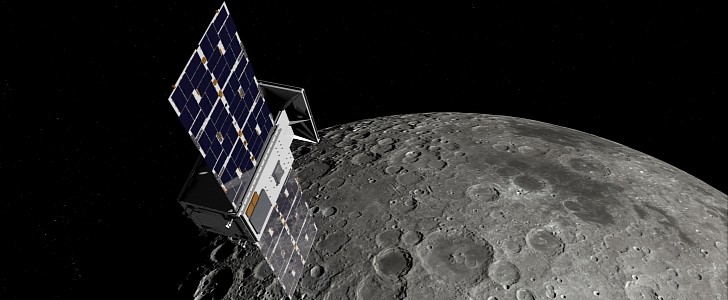Rocket Lab has revealed new details about its NASA-funded commercial mission to the Moon. The CAPSTONE mission, which was originally scheduled to launch in early 2021 from the space agency's Wallops facility in Virginia, will now launch in the fourth quarter of 2021 from Rocket Lab's launch site in New Zealand.
CAPSTONE (the Cislunar Autonomous Positioning System Technology Operations and Navigation Experiment) comes to support NASA's Artemis program, which will land the first woman and next man on the Moon by 2024.
NASA's CAPSTONE CubeSat will be launched to a unique lunar orbit using Rocket Lab's Electron rocket and Photon Lunar spacecraft. Electron will launch the CAPSTONE satellite, then use the Photon spacecraft as a trans-lunar injection stage to deliver the 55-pound (25 kg) satellite on a path beyond Earth's orbit to the Moon for the first time.
After Electron takes off and completes its initial elliptical low Earth orbit, the Photon spacecraft will separate from it and use its own engine. Powered by a HyperCurie engine, it will have enough in-space propulsion in order to allow CAPSTONE to break free of Earth's gravity and start a course for the Moon. Photon will then continue on its own trajectory after launching the CAPSTONE satellite, performing a lunar fly-by, while CAPSTONE will reach a cislunar orbit using its own propulsion system.
The main goal of CAPSTONE is to test and verify the orbital stability of a near-rectilinear halo orbit around the Moon, which is the same orbit that the Lunar Gateway will use. The Gateway is a proposed space station (smaller than the ISS) that will orbit the Moon and enable access to the lunar surface for astronauts. While in cislunar orbit, CAPSTONE will also test a navigation system that will determine its position in relation to NASA's Lunar Reconnaissance Orbiter without the use of ground stations.
The CAPSTONE mission, which was originally scheduled to launch from Rocket Lab's Launch Complex 2 in Virginia, will now launch from Launch Complex 1 in the fourth quarter of this year. This is not the company's first time when it shifts its mission from Virginia to New Zealand. On July 26th, Rocket Lab launched the Monolith satellite for the U.S. Space Force from its launch site in New Zealand, after it announced that it would do it from Virginia.
"Flexible isn't a word usually used to describe lunar missions but operating two launch complexes gives us the freedom to select a site that best meets mission requirements and schedule," said Rocket Lab Chief Executive Officer, Mr. Peter Beck.
NASA's CAPSTONE CubeSat will be launched to a unique lunar orbit using Rocket Lab's Electron rocket and Photon Lunar spacecraft. Electron will launch the CAPSTONE satellite, then use the Photon spacecraft as a trans-lunar injection stage to deliver the 55-pound (25 kg) satellite on a path beyond Earth's orbit to the Moon for the first time.
After Electron takes off and completes its initial elliptical low Earth orbit, the Photon spacecraft will separate from it and use its own engine. Powered by a HyperCurie engine, it will have enough in-space propulsion in order to allow CAPSTONE to break free of Earth's gravity and start a course for the Moon. Photon will then continue on its own trajectory after launching the CAPSTONE satellite, performing a lunar fly-by, while CAPSTONE will reach a cislunar orbit using its own propulsion system.
The main goal of CAPSTONE is to test and verify the orbital stability of a near-rectilinear halo orbit around the Moon, which is the same orbit that the Lunar Gateway will use. The Gateway is a proposed space station (smaller than the ISS) that will orbit the Moon and enable access to the lunar surface for astronauts. While in cislunar orbit, CAPSTONE will also test a navigation system that will determine its position in relation to NASA's Lunar Reconnaissance Orbiter without the use of ground stations.
The CAPSTONE mission, which was originally scheduled to launch from Rocket Lab's Launch Complex 2 in Virginia, will now launch from Launch Complex 1 in the fourth quarter of this year. This is not the company's first time when it shifts its mission from Virginia to New Zealand. On July 26th, Rocket Lab launched the Monolith satellite for the U.S. Space Force from its launch site in New Zealand, after it announced that it would do it from Virginia.
"Flexible isn't a word usually used to describe lunar missions but operating two launch complexes gives us the freedom to select a site that best meets mission requirements and schedule," said Rocket Lab Chief Executive Officer, Mr. Peter Beck.







